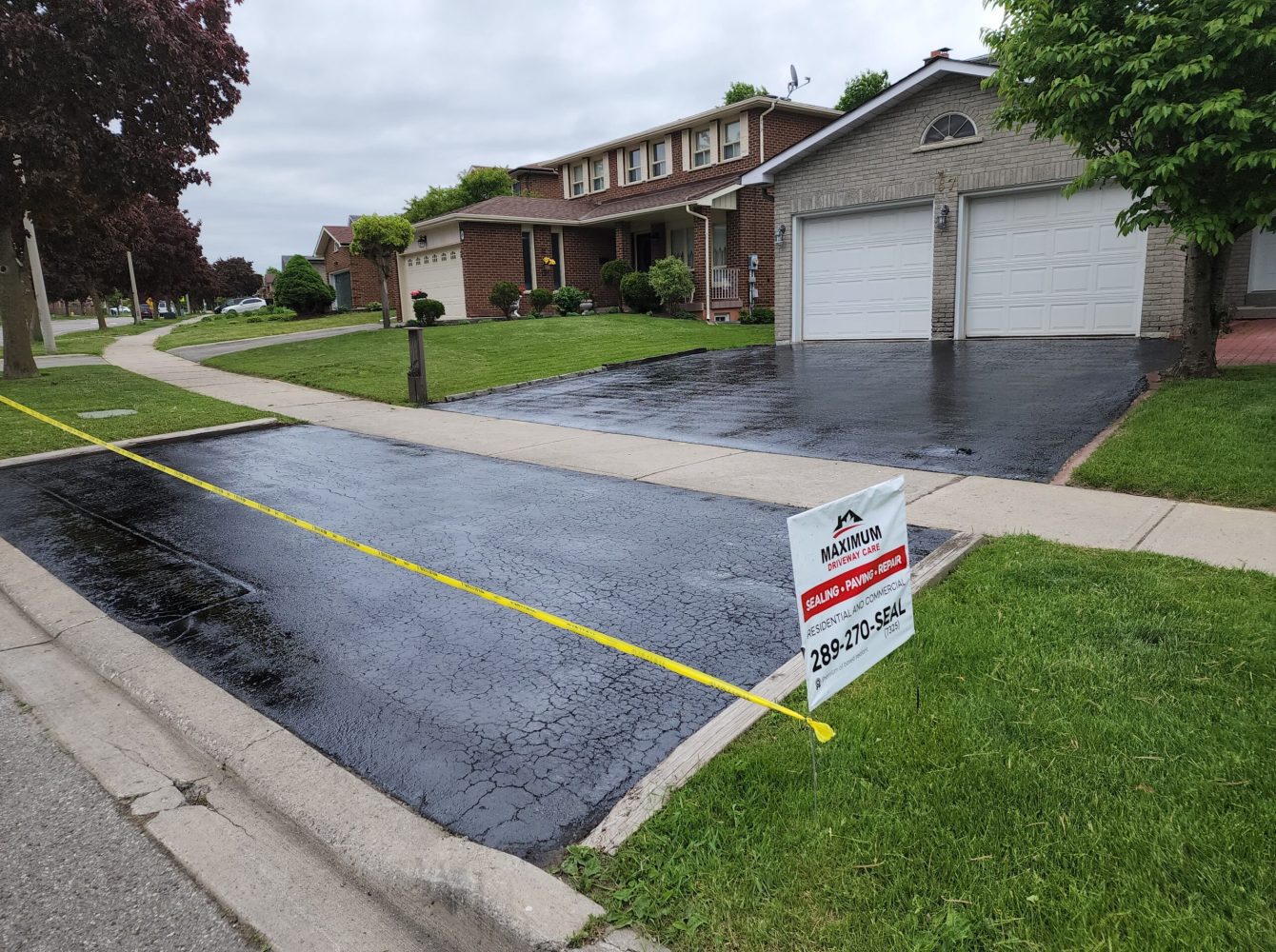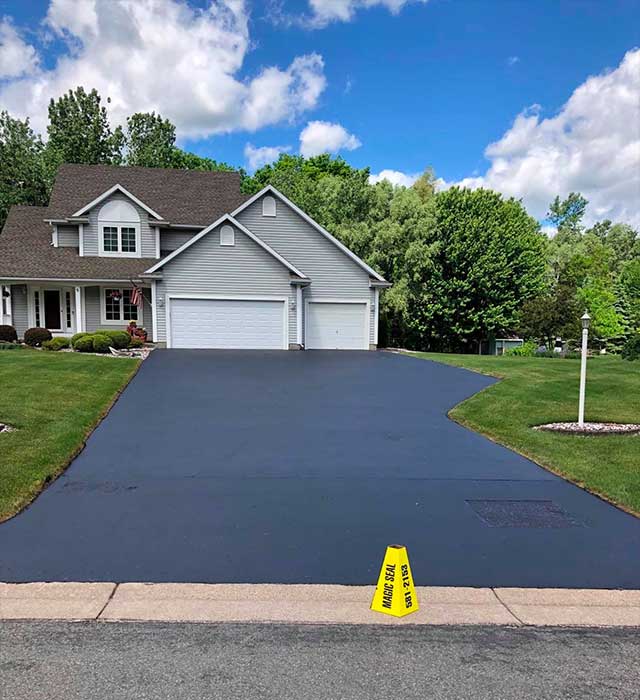Rejuvenate Your Home with Regrading and Asphalt Sealing Methods
Warm Mix Asphalt: A Sustainable Service for Pavement
Warm Mix Asphalt (HMA) has emerged as a leading lasting option for sidewalk solutions, using a myriad of ingenious modern technologies and ecological advantages. As the need for eco-friendly building and construction methods grows, checking out the nuances of HMA's sustainability can supply beneficial understandings into the future of sidewalk options.
Environmental Advantages of Warm Mix Asphalt

Moreover, Warm Mix Asphalt assists to reduce city warm island effects. Its dark color absorbs sunlight, decreasing the amount of warm reflected back into the ambience contrasted to lighter-colored pavements. This can reduce ambient temperatures in urban areas, decreasing the need for air conditioning and ultimately lowering energy intake.
Furthermore, Hot Mix Asphalt adds to boosted stormwater management. Its permeable nature allows water to infiltrate the pavement and charge groundwater supplies, decreasing drainage and the danger of flooding. These environmental advantages make Warm Mix Asphalt a lasting selection for paving roads and highways.
Energy Performance in HMA Production
Is power performance an important aspect in the production of Hot Mix Asphalt (HMA)? Energy plays a considerable duty in the production of HMA, affecting both expense and ecological sustainability. One key facet of energy performance in HMA manufacturing is the use of warm mix asphalt (WMA) innovations.
In addition, developments in plant modern technologies have brought about even more energy-efficient HMA manufacturing processes. Modern plants are made with attributes like recycled asphalt sidewalk (RAP) processing capabilities, reliable heater systems, and improved insulation, all adding to energy financial savings. By enhancing power usage in HMA manufacturing, the market can reduce its carbon impact while preserving high-quality pavement materials. Power performance is, for that reason, a critical consideration in guaranteeing the sustainability of Hot Mix Asphalt production.
Recyclability of Hot Mix Asphalt
The recyclability of Warm Mix Asphalt (HMA) is an essential facet of its sustainability and long-lasting environmental effect. HMA is among one of the most recycled materials in the USA, with over 100 million bunches of redeemed asphalt pavement (RAP) being recycled every year in new sidewalk building. Recycling HMA provides a number of ecological advantages, such as minimizing the need for virgin materials, reducing power usage throughout production, and decreasing the quantity of waste sent out to garbage dumps.
The process of reusing HMA entails crushing the existing sidewalk, crushing it right into smaller sized items, and mixing it with new aggregate and asphalt binder to produce a recycled mix. Overall, the recyclability of HMA plays a substantial duty in promoting sustainable methods within the sidewalk sector.
:max_bytes(150000):strip_icc()/barricade-tape-sealed-driveway-big-56a583145f9b58b7d0dd3d87.jpg)
Long-Term Efficiency of HMA
Asphalt pavements show longevity and strength over an extensive period, reflecting the long-term efficiency of Hot Mix Asphalt (HMA) Additionally, improvements in HMA technology, such as the use of polymer-modified binders and warm mix asphalt, have actually further boosted the sturdiness and durability of HMA pavements. By prioritizing top quality construction and upkeep techniques, HMA proceeds to show itself as a affordable and lasting service for long-lasting sidewalk facilities.

HMA: Sturdiness and Sustainability
Demonstrating both resilience and sustainability, Hot Mix Asphalt (HMA) has actually become a keystone in the building and construction hot mix asphalt of durable sidewalk facilities - angled parking. HMA's durability stems from its ability to hold up against hefty tons, rough climate condition, and high website traffic volumes, making it a reputable choice for roadways, freeways, and flight terminal runways. The composition of HMA, which commonly consists of aggregates, binder, and filler, plays an important function in boosting its durability and resistance to put on and tear
In addition, HMA's sustainability hinges on its recyclability and energy-efficient production process. The capability to recycle reclaimed asphalt pavement (RAP) in new HMA mixes lowers the demand for virgin materials and minimizes the environmental impact of sidewalk building and maintenance. Additionally, the energy efficiency of creating HMA hinges on its reduced blending temperatures contrasted to other pavement products, resulting in minimized energy usage and greenhouse gas discharges.
Final Thought
In final thought, hot mix asphalt (HMA) provides a lasting remedy for sidewalk with its environmentally friendly qualities. HMA's recyclability, power performance in manufacturing, and lasting sturdiness make it an environment-friendly selection for roadway building and construction.
HMA is one of the most recycled materials in the United States, with over 100 million bunches of recovered asphalt pavement (RAP) being recycled each year in brand-new pavement building and construction.The process of reusing HMA includes milling the existing pavement, crushing it right into smaller items, and mixing it with new accumulation and asphalt binder to produce a recycled mix.Asphalt sidewalks show toughness and durability over an extended duration, showing the lasting efficiency of Hot Mix Asphalt (HMA) Furthermore, innovations in HMA technology, such as the use of polymer-modified binders and cozy mix asphalt, have better improved the sturdiness and long life of HMA pavements. The capability to reuse recovered asphalt sidewalk (RAP) in brand-new HMA mixes reduces the demand for virgin products and lessens the ecological influence of pavement building and maintenance.